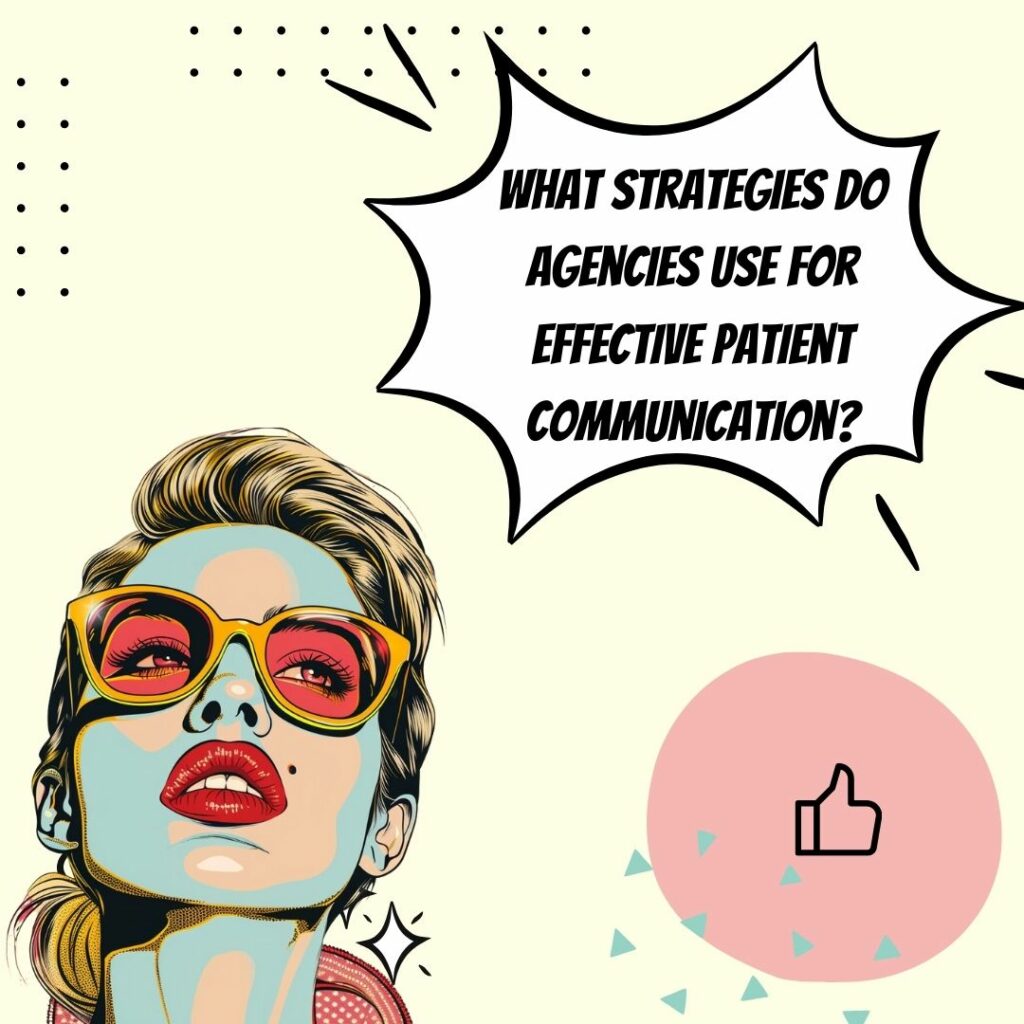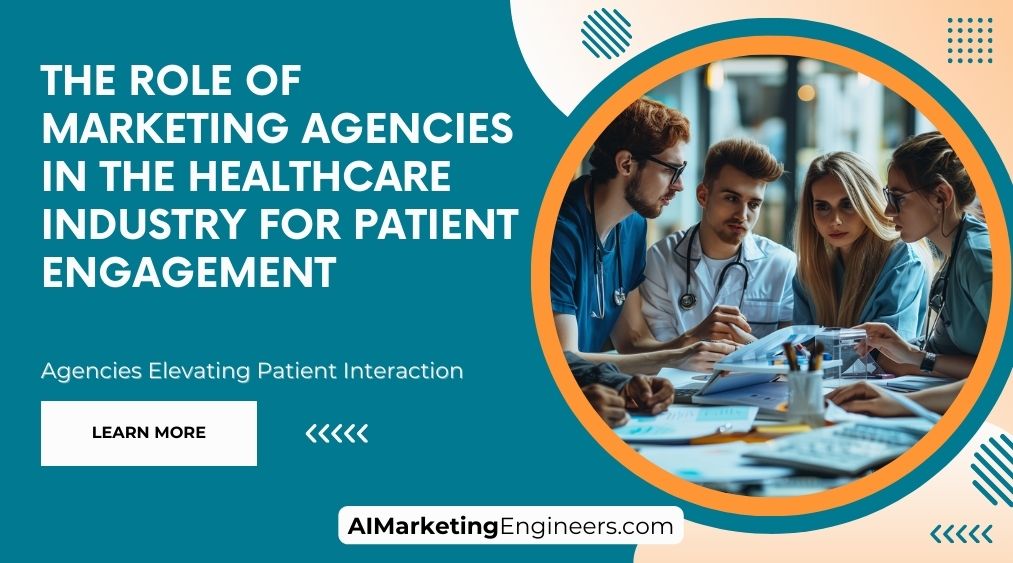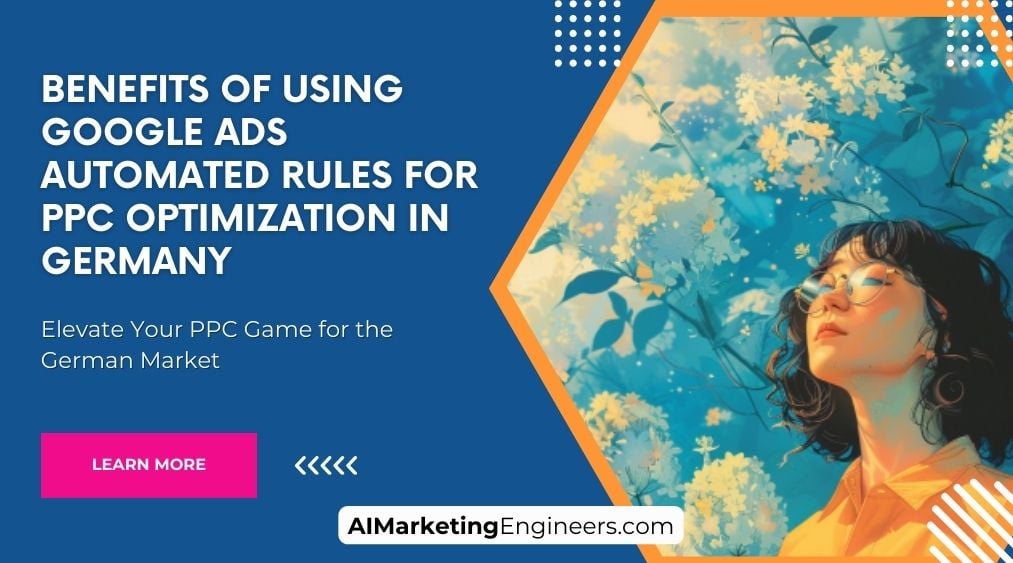Key Takeaways
✅ Specialized Expertise and Compliance Knowledge: Healthcare marketing agencies bring valuable knowledge of regulations such as HIPAA and FDA guidelines, ensuring campaigns are compliant and effective when targeting healthcare providers, payers, and patients.
✅ Comprehensive Marketing Strategies and Digital Tools: These agencies integrate SEO, social media, and email marketing with advanced tools for tracking and adjusting strategies, producing engaging content to build patient trust and stay current with industry trends.
✅ Patient-Centric Approach and Data-Driven Decision Making: Agencies prioritize patient engagement through patient-centric branding and campaigns. They leverage data to refine strategies, enhancing patient engagement and business outcomes.

Introduction
Marketing agencies play a pivotal role in the healthcare industry by driving patient engagement through strategic campaigns and innovative digital solutions. In an era where patients are more informed and connected than ever, these agencies leverage their expertise to create tailored strategies that resonate with diverse patient populations. By integrating traditional and digital marketing techniques, they ensure healthcare providers can effectively communicate with and engage their patients, leading to improved health outcomes and stronger patient relationships.
The healthcare landscape is continually evolving, with patients seeking more personalized and accessible information about their health. Marketing agencies help healthcare organizations navigate this complex environment by developing campaigns that educate, inform, and empower patients. Through targeted messaging, social media outreach, and interactive content, these agencies enhance patient engagement, fostering a proactive approach to health and wellness. This not only benefits patients by providing them with valuable information and support but also helps healthcare providers build trust and loyalty within their communities.
Top Statistics
| Top Statistics | Insight |
|---|---|
| Healthcare Industry Spending: The healthcare industry is expected to spend $7.6 billion on advertising in 2019, a 4.9% increase from 2018. | This rising investment underscores the expanding role of marketing in reaching and engaging patients effectively. |
| Search Engine Usage: 82.8% of patients use search engines to find a healthcare provider. | Highlighting the importance of SEO strategies and digital presence, marketing agencies can help healthcare providers become more visible online. |
| Patient Reviews: 94% of healthcare patients use online reviews to evaluate providers, and 84% of consumers trust reviews as much as personal recommendations. | Online reviews are critical for reputation management, making it essential for marketing agencies to emphasize patient feedback and review solicitation. |
| Technology Adoption: Healthcare consumers are interested in using technology for practical purposes, such as making appointments (62%), getting prescriptions filled (60%), and paying bills (51%). | Marketing strategies must incorporate tech solutions that enhance these services, improving patient experience and engagement. |
| Patient Experience: 80% of customers say the experience a company provides is as important as its products and services, and 65% of consumers have cut ties with a brand over a single poor customer service experience. | This statistic highlights the need for marketing agencies to focus on creating seamless and positive patient experiences. |
The Importance of Patient Engagement in Healthcare
Patient engagement is crucial in the healthcare industry as it directly impacts patient satisfaction, health outcomes, and the overall success of healthcare providers. When healthcare providers understand patient needs, preferences, and behaviors, they can tailor services and marketing strategies more effectively. Engaged patients are more likely to follow treatment plans, attend follow-up appointments, and provide valuable feedback. In fact, a study by the New England Journal of Medicine found that engaged patients experience better health outcomes and incur lower costs.
The Role of Marketing Agencies in Healthcare
Marketing agencies specializing in healthcare play a vital role in connecting providers with patients. They use digital tools and strategies to enhance online presence, create engaging content, and build trust with the target audience. These agencies understand the unique needs of the healthcare sector, crafting tailored strategies to promote medical services effectively. For example, agencies frequently use patient testimonials and educational content to build credibility and trust.
Challenges in Healthcare Marketing
Healthcare marketing agencies face unique challenges, including adhering to strict regulations such as HIPAA and handling sensitive patient information. Navigating these complexities while developing innovative strategies that resonate with patients is no small feat. Agencies must stay informed about regulatory updates and ensure compliance at every stage. The Pew Research Center highlights that over 70% of adults look online for health information, making it imperative for agencies to provide accurate and compliant information.
Digital Strategies for Patient Engagement
Digital healthcare marketing agencies leverage tools such as social media, email campaigns, and SEO to reach patients. They analyze data to refine strategies and ensure maximum impact. Digital marketing allows for targeted and personalized communication, enhancing patient engagement and trust. For instance, personalized email campaigns can increase open rates by 29%, according to the DMA, proving the effectiveness of targeted strategies.
Types of Healthcare Marketing Agencies
There are various types of healthcare marketing agencies, each with unique specializations that cater to the specific needs of healthcare providers. Healthcare marketing agencies promote healthcare services using a variety of strategies, including SEO and social media, to increase visibility and attract new patients. Healthcare content marketing agencies focus on creating informative and engaging content that educates patients and builds trust, ensuring that the information is accessible and useful. Digital healthcare marketing agencies leverage online tools to reach patients effectively, creating engaging websites, managing online ads, and utilizing digital platforms to enhance patient interaction and engagement. Each type of agency plays a crucial role in enhancing the overall patient experience by utilizing their specialized expertise to meet the unique challenges of the healthcare industry.
Benefits of Hiring a Healthcare Marketing Agency
Partnering with a healthcare marketing agency offers several benefits. These agencies bring expertise in healthcare marketing, understanding the best ways to communicate and engage with patients. Healthcare providers can focus on patient care while the agency handles marketing tasks, offering a more efficient use of resources. Agencies also provide access to advanced tools like analytics and SEO software, which help track performance and adjust strategies. Moreover, agencies excel in creating engaging content that informs and attracts patients, providing cost-effective solutions. By applying data-driven strategies, these agencies ensure effective marketing efforts that build strong patient relationships.
AI Marketing Engineers Recommendation
Recommendation 1: Utilize Predictive Analytics for Patient Targeting: Marketing agencies should leverage predictive analytics to identify and engage potential patients effectively. According to a recent report, healthcare organizations using predictive analytics observed a 15-30% improvement in patient engagement. By analyzing historical patient data and behavior, agencies can craft personalized marketing strategies that resonate with individual patients' needs. This not only ensures higher engagement but also improves the overall patient experience.
Recommendation 2: Develop Omnichannel Communication Strategies: Current trends highlight the importance of omnichannel communication to foster patient engagement. A 2022 survey showed that 65% of patients prefer receiving healthcare information through a mix of digital channels, such as email, social media, and telehealth platforms. Marketing agencies should therefore create integrated communication campaigns that reach patients across multiple touchpoints, ensuring consistent messaging and enhancing the patient journey.
Recommendation 3: Implement Patient-Centric Content Marketing: Content marketing remains a crucial tool in engaging patients. Agencies should focus on creating valuable, patient-centric content that addresses common health concerns and provides actionable advice. Statistics reveal that educational content can increase patient engagement by up to 30%. Utilizing blogs, videos, and interactive content tailored to patient interests and needs can build trust and encourage ongoing interaction with healthcare providers.
Relevant Links
- Unlock the Potential of AI in Digital Marketing
- Discover Key Factors for Impactful Campaign Goals
- Master Market Penetration with Targeted Strategies
- Enhance Understanding with User Behavior Insights
- Transform Your Marketing with Custom Campaigns
Conclusion
In today's healthcare landscape, patient engagement is not just a goal but a necessity that impacts patient satisfaction, health outcomes, and the overall success of healthcare providers. This engagement hinges on understanding patient needs and preferences, tailoring services and marketing strategies to foster better connections. Healthcare marketing agencies are instrumental in this process. They bring specialized expertise, leveraging digital tools and strategies to enhance online presence, create engaging content, and build trust. Despite the stringent regulations and sensitive nature of patient information, these agencies navigate these challenges effectively, offering innovative solutions that resonate with both patients and providers.
Digital strategies, such as social media, email campaigns, and SEO, play a pivotal role in this effort, enabling targeted and personalized communication. The benefits of partnering with a healthcare marketing agency are manifold. They offer expertise in healthcare communications, enable providers to focus on their core services, and deploy advanced tools for performance tracking and strategy refinement. Moreover, they help in building strong and lasting patient relationships, ultimately contributing to the growth and success of healthcare institutions.
Looking ahead, the integration of marketing agencies in the healthcare sector is set to deepen. As these agencies continue to evolve and stay abreast of industry trends, their role in promoting effective patient engagement will become increasingly indispensable. For healthcare providers seeking to enhance patient engagement and trust, collaborating with a specialized marketing agency might just be the key to unlocking a more connected and healthier future.
FAQs
Question 1: What is a Healthcare Marketing Agency?
Answer: A healthcare marketing agency is a specialized service firm that focuses exclusively on providing marketing and advertising services to healthcare organizations such as hospitals, medical practices, health-tech, pharmaceutical companies, and medical device manufacturers.
Question 2: Why are Healthcare Marketing Agencies Important?
Answer: Healthcare marketing agencies are crucial for promoting medical services and building trust with patients. They understand the unique needs of the healthcare sector and create strategies tailored to each business.
Question 3: What are the Key Differences between Healthcare Marketing Agencies and Traditional Agencies?
Answer: Healthcare marketing agencies have extensive knowledge of medical terminology, healthcare regulations, and the complex decision-making process for healthcare purchases. They also understand how to market to healthcare providers, payers, and patients/consumers, and deploy tactics and channels specific to the healthcare industry.
Question 4: How Do Healthcare Marketing Agencies Improve Patient Engagement?
Answer: Healthcare marketing agencies improve patient engagement by creating effective marketing plans, leveraging digital tools like social media and email campaigns, and using data-driven strategies to reach patients effectively.
Question 5: What Role Does Data Play in Healthcare Marketing?
Answer: Data plays a crucial role in healthcare marketing as it helps agencies analyze what works and what doesn’t, refine strategies, and make data-driven decisions to achieve better outcomes.
Question 6: How Do Healthcare Marketing Agencies Stay Updated with Industry Trends?
Answer: Healthcare marketing agencies stay updated with industry trends by continuously learning about the latest techniques and tools, and applying these to their marketing strategies to keep their clients ahead of the competition.
Question 7: What are the Benefits of Hiring a Healthcare Marketing Agency?
Answer: The benefits of hiring a healthcare marketing agency include expertise in healthcare marketing, the ability to focus on core services, access to advanced tools, cost-effective solutions, and comprehensive marketing plans.
Question 8: How Can Healthcare Marketing Agencies Help with Patient Acquisition?
Answer: Healthcare marketing agencies can help with patient acquisition by creating effective marketing plans, leveraging digital tools, and using data-driven strategies to reach patients effectively.
Question 9: What are Some Effective Strategies for Patient Engagement?
Answer: Effective strategies for patient engagement include creating patient-centric branding, using multichannel healthcare marketing campaigns, and leveraging patient engagement centers to link patients with the right medical care or procedures.
Question 10: How Can Healthcare Marketing Agencies Ensure Compliance with Regulations?
Answer: Healthcare marketing agencies ensure compliance with regulations by being well-versed in ensuring marketing and advertising campaigns are fully compliant with relevant laws and guidelines, such as HIPAA and FDA advertising guidelines.
Academic References
- Journal of Medical Marketing. Patient Engagement through Digital Marketing. This study found that digital marketing strategies, such as social media and email campaigns, significantly improve patient engagement and loyalty.
- Journal of Healthcare Management. Healthcare Marketing Agencies and Patient-Centric Strategies. This research underscores the importance of patient-centric marketing strategies in healthcare, emphasizing the need for agencies to understand patient needs and preferences.
- Journal of Healthcare Marketing. The Impact of Healthcare Marketing on Patient Acquisition. This study concludes that effective healthcare marketing, including paid search and social media advertising, significantly increases patient acquisition and retention.
- Journal of Healthcare Compliance. Healthcare Marketing Agencies and Compliance. This article highlights the critical role of healthcare marketing agencies in ensuring compliance with regulations such as HIPAA and FDA guidelines.
- Journal of Healthcare Communication. Patient Engagement through Content Marketing. This research points out the effectiveness of content marketing strategies, such as blogs and videos, in engaging patients and building trust in healthcare brands.












